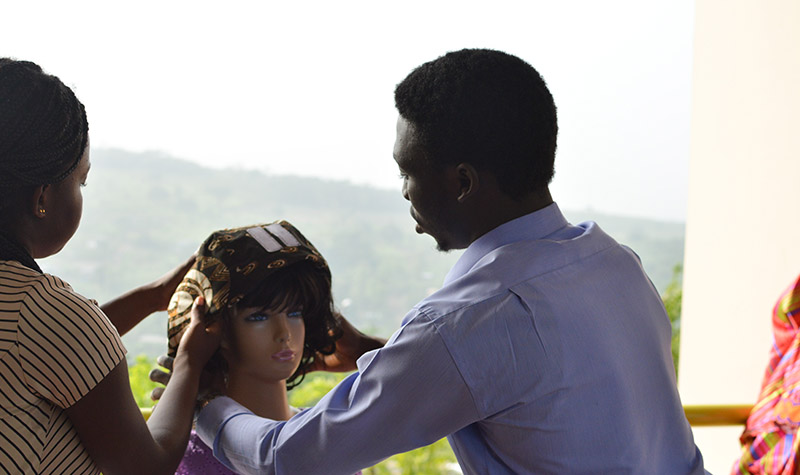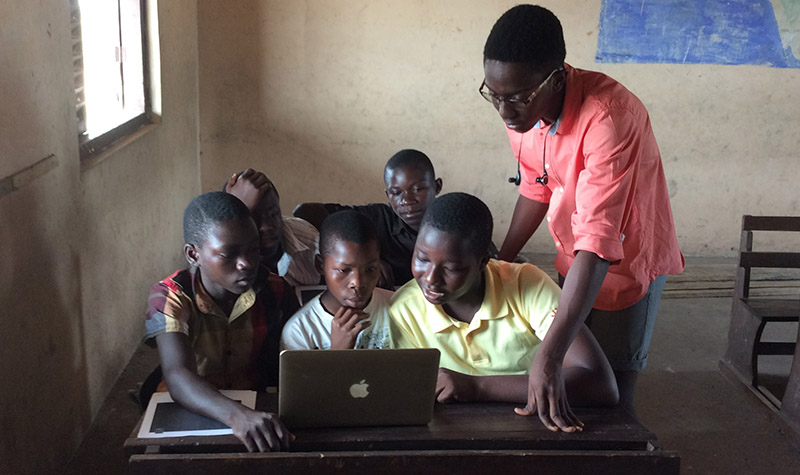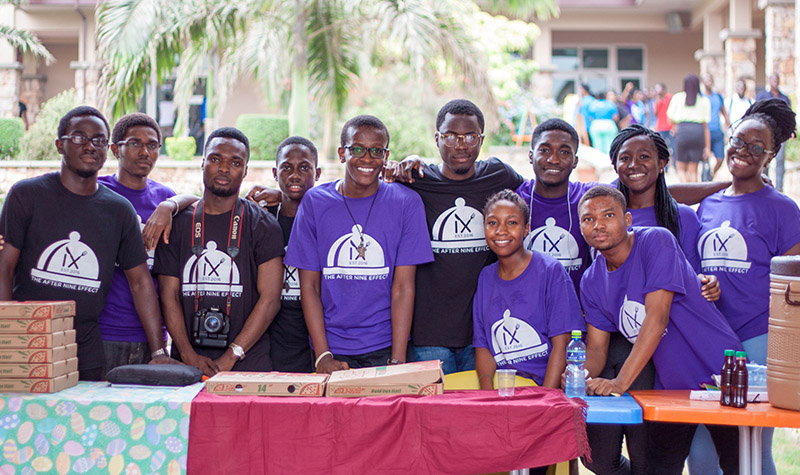 April 20, 2016
April 20, 2016
Freshman Samuel Agyeman Prempeh ’19 believes his startup TLS has a revolutionary solution for eliminating repulsive odors from your refrigerators. The product, Ordel refrigeration system, uses an activated carbon technology to help eliminate odors from refrigerators. In a few months following their launch, the product has been nominated for a national startup award.
Ordel refrigeration system actually is one of several startups within the budding entrepreneurial ecosystem in Ashesi. Over the past year, Ashesi’s campus has steadily grown into a hotbed for startups. There’s a late-night food delivery service, a makeshift body massage parlor, a company that’s offering an innovative way to dry hair, an out of school educational service, a social enterprise aimed at addressing neurological disorders in children and over ten other startups, started mainly by freshmen as part of their Foundations for Design and Entrepreneurship (FDE) class.

FDE is a yearlong course in design and entrepreneurship aimed at training students to use design thinking to solve problems around them, and potentially create businesses out of those solutions. The first semester of the class looks at design thinking with the aim of positioning students to develop an innovative posture and helping them acquire problem solving skills including empathy, critical thinking and prototyping, amongst others. During the second semester, students launch and run their businesses, with the aim of growing the startups into revenue-generating business.
“We needed to focus on the problem and on developing strong solutions,” said Gordon Adomdza. “Design thinking provides you with a user-centred and systems-based or bird’s-eye view approach to problem solving that also provides unique insights. So in a world where users are looking beyond the functionality of products the only way startups and businesses can meet the expectations of their users is to take a bird’s eye view to their problems and solve them creatively. And this must precede but not be limited to the front-end of the entrepreneurial process, which is what we did with FDE.”

While the class is aimed at exposing students to real world entrepreneurial experiences albeit in a controlled atmosphere, the startups nonetheless have to deal with many of the same ups and down that a regular company has to deal with. For Compressibowl, a company that sells collapsible lunch-bowls with biodegradable liners, when sourcing the bowls became a challenge, they employed simple solutions to raise funds. “Following our initial launch, we had to raise money to get more bowls to start business,” said Beuelah Sackey ’19. “So we sold and delivered cupcakes and cookies every week to help raise some money. This has helped us, and currently, we are waiting for our stock to arrive this week.”
In recent years, the demand for electricity in Ghana far outweighed the supply, and Ghana plunged into an energy crisis. A number of businesses closed due to the lack of power to run their day-to-day activities. These included hair styling salons who required power to run their equipment, including hairdryers. In response to this need, one of the startups came up with a padded scarf to help remove moisture from hair, without the need of electricity. Following the rectification of the energy crisis, their product, however, still remains viable.
“We were moved by the losses hairdressers in Berekuso and Kwabenya were experiencing as a result of power outages,” said Christopher Zanu’19 . “They lose customers, become unproductive, frustrated and do not gain enough income to cater for their families. Though the power crisis has been fairly resolved, our product is still relevant because it revolutionizes the process of hair drying in a way which reduces time spent in drying, discomfort to the user. Essentially our product is more reliable and also portable.

Through the entrepreneurial journey the students take, the goal is that, some of these startups become full-fledged businesses. While FDE may remain a purely academic exercise for some students, for others it serves as a primer for their entrepreneurial careers. Even before they go into the real world, the students would have gained skill-set and experience in running a business. “Eventually if they are not excited about the business they are working on right now in class, in the future, this process will not be a totally new thing for them,” said Dr. Sena Agyepong. “Moving forward what we really expect to see is more collaboration across students from different majors, towards starting ventures and efforts that will start some very impactful change in the country and across the continent. And we think this is a very useful tool to get them started.
News story share:
Share this story
